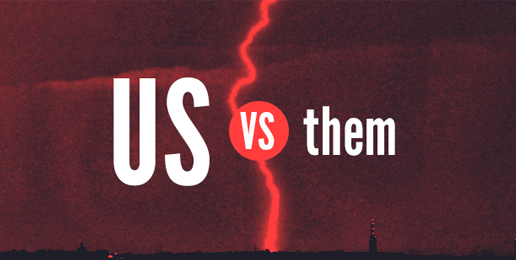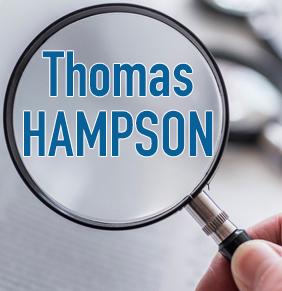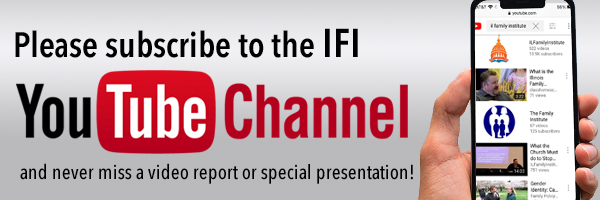
Regardless of their claimed party affiliation, average Americans are more unified in their opinions than it might appear. It doesn’t seem that way when we watch the news or read the paper, and sometimes even when we discuss issues one-on-one. An outside observer might even think we are hopelessly divided.
But, on many issues, we are not. At least not yet.
The real division, the deep division, is between the elites and the rest of us. The division between us and the elites who also graduated from Ivy League Universities is even greater.
Several months ago, the Committee to Unleash Prosperity commissioned Rasmussen to conduct a poll comparing the views of average Americans and the top 1% of our population—the elites. The findings provide clear insight into why it sometimes appears that we have a uni-party rather than a two-party system. For the survey, elites were “defined as those having a postgraduate degree, a household income of more than $150,000 annually, and living in a zip code with more than 10,000 people per square mile.”
One of the survey questions was, “Do you approve of Joe Biden’s job as President?” In September of last year, only 44% of average Americans approved, while 84% of the elites approved. That is a huge gap, 40%.
Another question was, “Does the United States provide too much individual freedom, too much government control, or is the balance about right?” Fifty-seven percent of average Americans answered that the government exercises too much control. Only twenty-one percent of the elites thought that, and only fifteen percent of elites who graduated from Ivy League Universities believe our government is too controlling.
Wow, a 42% gap between the average American and the Ivy League elites.
How about the issue of climate change? The survey asked, “To fight climate change, would you favor or oppose the strict rationing of gas, meat, and electricity?”
Only 28% of the average Americans favor such rationing, while 77% of the elites favor it, and a whopping 89% of the Ivy League elites favor strict rationing of these common products. There is a 61% difference between the average person and the elites who graduated from an Ivy League school.
(I can’t help but think this is a lot of virtue signaling by the elites. Many of these are the same people who fly their private jets to Davos so they can discuss how to solve world problems, including problems such as climate change. I would have liked to have seen this question asked: “Should private jets be banned?”)
Let’s look at the views on who should decide what children are taught. One of the questions was,
“If you had a choice between a candidate who said that teachers and other education professionals should decide what students are taught and a candidate who said that parents need more control over what their children are taught, for whom would you vote?”
The gap here is not so great. The average American favors parents over teachers, and the elites favor the teachers over the parents.
Those who favor teachers over parents: average Americans—38%, elites—67%, and Ivy League elites—71%. For those who favor parents over teachers: average Americans—45%, elites—26%, Ivy League elites—26%. Seventeen percent of average Americans are unsure whether parents or teachers should decide. Uncertainty falls to 7% for the elites and only 4% for the Ivy Leaguers.
The differences are statistically significant, but they are not nearly as great as they are for some of the other questions. We all tend to seek advice from experts, which is a good thing. Bridges should be built by skilled engineers, and airplanes should be flown by highly trained pilots. Lawyers should defend us in court, and doctors should direct our medical care.
Doesn’t it follow that educators should decide what is taught in the classroom?
Only 38% of average Americans think that teachers should decide what children are taught, while 45% think that decision belongs to parents. Seventeen percent are unsure. Among elites, 67% favor teachers over parents, and 26% parents over teachers. Seven percent are unsure. Ivy League elites favored teachers over parents, 71% to 26%, with 4% unsure (I know that adds up to 101%, but that’s what the study reports, apparently ignoring fractions of a percent).
All these statistics make my head spin, but they are important. We have to look at one more set.
Last summer, Pew Research conducted a study showing that 54% of adults believe that climate change is a major threat to the United States. That is slightly less than it was in 2020 but higher than in 2010. What’s really interesting is that 78% of Democrats see climate change as a major threat, but only 23% of Republicans view it that way.
Compare this to the Rasmussen findings on rationing to prevent or reduce climate change—28% of average Americans are willing to accept it, while 89% of Ivy League elites are in favor of it. We know that the Ivy League elites are wildly skewed toward the Democrats. There are almost no Republican professors in Ivy League schools, and they produce Ivy League grads who are predominately Democrats. This could account for some differences in our views on climate change.
We can see that the views of the elites in the Ivy League schools drive the views on climate change—at least the professed views that it’s a threat. But when it comes to doing something about the problem, like rationing, the views of the elites seem to have much less impact.
We are a culture that respects and often defers to the experts, the elites. Our modern culture requires specialization. We can’t all do everything. We rely on mechanics to fix our cars, electricians to keep our lights on, plumbers to keep the water flowing, doctors to keep us healthy, and teachers to educate our kids, and so on.
We go about our daily lives and leave the management of our government and major institutions to the experts. But we are beginning to recognize that something has gone wrong. Many of our elites are abusing the trust we placed in them. We are a nation founded on Christian principles, but we are slowly discovering that our elites are betraying those principles.
Do we continue to follow them? Or do we return to our nation’s founding principles? The Rasmussen poll suggests that large numbers of us are beginning to break from supporting the elites’ positions. This is a hopeful sign. The break is most clearly revealed in the views of average Americans regarding the administration of our schools and the education of our children. All you need to do is look at the political upheaval in Virginia two and a half years ago, which was a repudiation of the progressive agenda in education.
Virginia voters, like the rest of us, discovered, much to their horror, that boys were being allowed in the girl’s bathrooms. At least twice, that led to a sexual assault involving a transgender girl (a boy), and both assaults were covered up.
In schools all over the country, we have learned that some teachers in some schools are:
- teaching children as young as four years old that they won’t know if they are boys or girls until they discover their true sexuality sometime in the future
- encouraging children to become activists who promote their teacher’s current pet project—climate change, women’s health rights, equity, or whatever
- helping children to transition to another gender without the parent’s knowledge or consent
- telling children that their teachers are the only people who are looking out for their best interests and that parents who don’t support the child’s views are the enemy
- teaching children as young as 10 how to engage in all manner of sexual activities, even using pictures, again without the parents knowing
The elites fully support this. But the rest of us, on both sides of the political aisle, we’ve had it. The average Americans, who are Democrats, are a little slower to come around, but they are coming around. The only reason the movement to reject the elites’ view of the world has not been more successful than it has been is that the elites control the media, including social media—apart from X.
The church has not helped much with the pushback against the elites. Instead, like the rest of our institutions, churches have been caving to the woke agenda. The Methodist Church is the latest.
Even those churches that have not caved have not done much to speak out against this cultural collapse. Apparently, they don’t want to be controversial or risk conflict.
This attack on childhood innocence is not a political issue. Parents, grandparents, aunts, and uncles are overwhelmingly united in their desire to protect children. Let’s not alienate one another by turning the issue into a political one.
We are united on many issues. Instead of using political rhetoric to create division, we need to approach issues where there is common ground.
The Rasmussen survey proves there is a lot of territory where we stand in the same place. Let’s seek those places out.





















